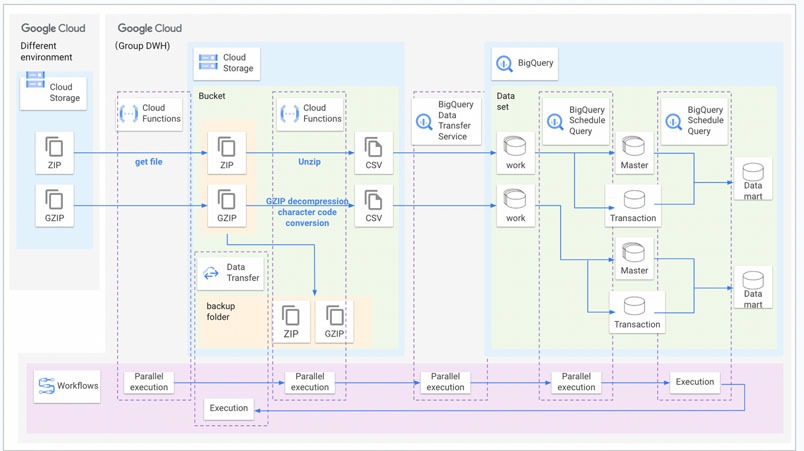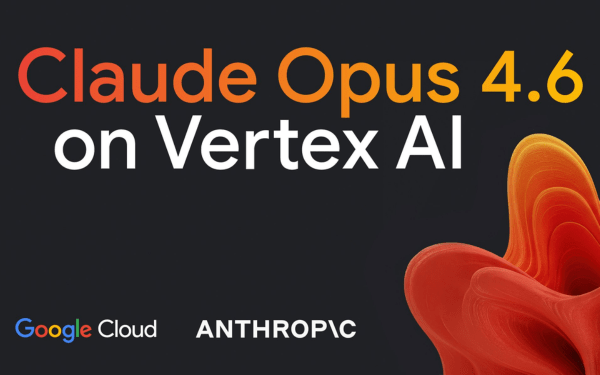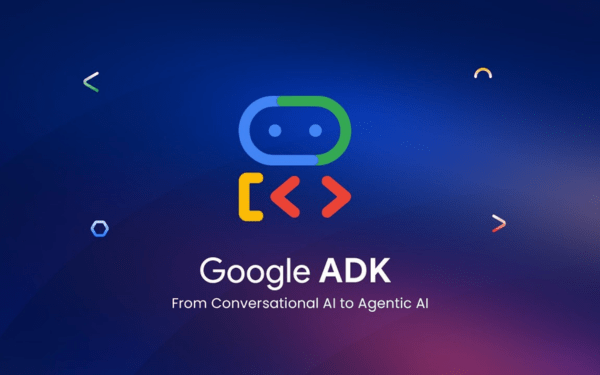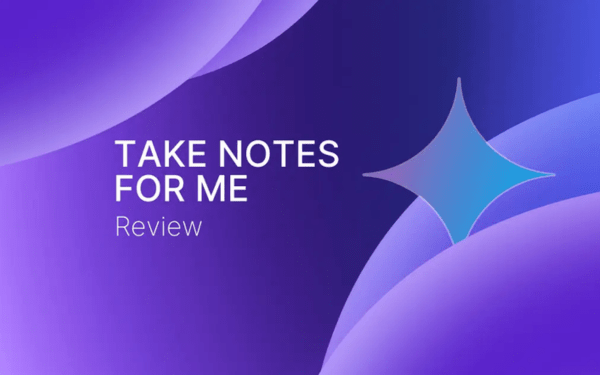Tại Google Cloud, Google cam kết cung cấp cho khách hàng sự lựa chọn hàng…
How Asahi Group fostered a culture of innovation by building a data analysis platform
As an intermediate holding company, Asahi Group oversees operating companies in Japan including Asahi Breweries, Asahi Soft Drinks, and Asahi Group Foods. In 2015, we began the first phase of our IT infrastructure development. This was followed by two phases, with the goal of the second phase to include IT functions as part of the company’s management strategy. The third phase will see the company utilizing data to its fullest extent throughout the group, in order to foster a culture of innovation.
Part of this plan involved establishing a new department in the Asahi Group, known as the Data and Innovation Office, in January 2023. An entity that is separate from the group’s digital transformation management department, its responsibilities include extracting meaningful consumer insights for driving business and customer value, building structures and mechanisms such as applications that can be deployed in the field, and creating successful use cases that can be implemented broadly across the group. For that purpose, a data analysis platform limited to a specific business area wasn’t enough. Instead, we needed to provide a solution that was optimized for the entire group, and to have ample successful use cases that could be shared effectively across the group.

Google Cloud was chosen because of its ability to track records as well as the cloud platform's ability to meet the high performance and flexibility requirements that Asahi Corporation's data analytics platform requires for its Diverse business needs and rapid future changes in the business landscape. BigQuery especially attractive due to Asahi's ability to analyze big data at such high speeds, the ease of getting started with the service as it is fully managed, easy maintenance and the ability to reduce costs with installation set pay-per-use pricing. Asahi also likes how it is regularly updated with new features that Asahi is looking for.
Utilizing new features through frequent updates in Google Cloud
Google Cloud partner, Kanazawa-based system integrator System Support Co., Ltd, helped Asahi Group implement Google Cloud to construct our data analysis platform. As this data analysis platform will be widely used across the group, they took great care in handling the large amount of data. System Support used tagging for the BigQuery dataset, which was added in June 2022, and implemented Identity and Access Management (IAM) policies. The frequent updates by Google Cloud encourages innovation at the Data and Innovation Office. Google Cloud is the best choice for Asahi Group as it constantly adds new features.
System Support took into account our request for ease of configuration. What this means is that the data analysis platform should be easy to operate and manage for us, because we have a limited number of in-house engineers. To do so, the group proactively adopted Google Cloud’s serverless architecture. System Support organized how each system communicates and coordinates with one another through multiple clouds to BigQuery, combining BigQuery query scheduling, workflows, cloud functions and more. This made each workflow loosely connected and easy to reconfigure when necessary.
The newly built data analysis platform can aggregate and accumulate dispersed data in BigQuery, while integrating with around 200 small and large systems that are used by the group’s operating companies. Business intelligence (BI) tools were also implemented to visualize analyzed data. BigQuery analyzes big data quickly and effectively, and as a fully managed service, it is easy to deploy and operate with new functions added frequently. With pay-as-you-go pricing, costs can be kept low too.
Performing complex data processing with Dataform
Asahi Group’s data analysis platform was fully operational by January 2023. The operating companies have started to understand the value of the new data analysis platform, and our focus will be on how to spread the use of the platform across each operation. Our perspective on how to train our employees has also changed. Until last year we were training employees to use Python, but this year we will focus on business intelligence tools, so they can quickly learn how to use our data analysis platform. By lowering the technical threshold of our tools and making them easier to use, we are seeing improved responses and results from the field.
Meanwhile, ad-hoc analysis that can't be handled by streamlined BI tools with Dataform, which is integrated into BigQuery. We perform data cleansing, visualization and analysis in ad-hoc analysis. With Dataform, we can automatically analyze the dependencies between queries and process pipelining with just one click. Since complex data processing can now be easily performed, the time spent on analysis can be greatly reduced, allowing more time to be devoted to more strategic work.
Enhancing employee training and data analysis
Besides enhancing the data analysis platform, we are looking at ways to improve our employee training program. We want to improve our training for business analysts, who bring together data experts and business sites. Our goal is to enable data specialists, who are familiar with business sites, and business analysts to collaborate together seamlessly as One Asahi. We aim to have 20% of employees trained as business analysts. By achieving this, we believe we will be at a stage where we can accelerate innovations. We also aim to introduce more tools in 2023 that can transform our business processes, rather than just providing suggestions based on analysis.
But we’re not done. Going forward, we plan to set up an organization named "Factory," in the form of an application, presenting a beta version to group companies and the market, and carrying out test marketing in an agile manner. This will allow us to learn more about the data analysis platform built on Google Cloud from various perspectives, acquire consumer insights derived from this data, and enable employees to better contribute to driving business value daily.
Source: Gimasys



